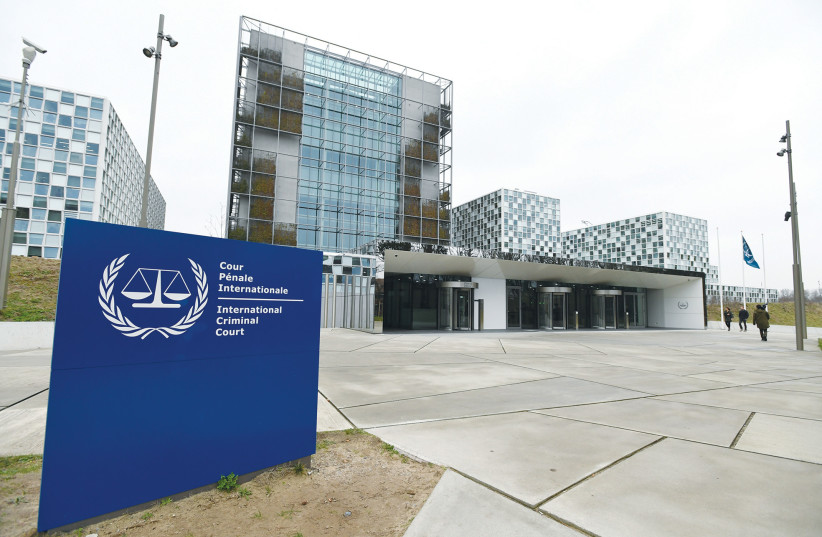The IDF is expected to publish some results of its war crimes probes of its soldiers shortly, following the recent decision by the International Criminal Court to approve arrest warrants against Prime Minister Benjamin Netanyahu and former defense minister Yoav Gallant.
Although some of the probes are already more than a year old and theoretically could have had a decision published earlier, there has been massive domestic political pressure against publicizing results related to alleged crimes by soldiers.
With Hamas’s October 7, 2023, slaughter of 1,200 Israelis, hostages still in the hands of Hamas, and soldiers getting killed in battle, it has been easier for the IDF legal division to carry out probes but delay reaching a final decision, which would go public and risk angering the military high command and the political class.
Even in the Sde Teiman cases, which are regarded by military prosecutors as more open-and-shut because they involved alleged abuse of a Palestinian detainee while in prison, not on the battlefield, the IDF legal division still has not publicized a decision.
In that particular case, dozens of soldiers either assaulted or interrupted the military police’s operation to arrest around 10 soldier suspects on July 29, including soldiers suspected of sexual assault.

The Jerusalem Post understands that the first pre-indictment hearing for one of the group of soldier suspects took place on November 5 or 7.
Three weeks later, and around four months from when the cases opened, the IDF still has not indicted or closed those cases.
This is despite the Post’s understanding that the IDF legal division has opened around 85 criminal probes against its soldiers and, by August 6, had at least 220 operational probes running, adding up to over 300 different categories of probes. This in itself was a big jump, as earlier in the summer, the IDF was closer to around 150 total probes.
The number spikes further
The number has jumped again in recent weeks, with the military opening around 16 new operational probes into air strikes on Palestinians in Jabalya during the spike in fighting in northern Gaza after that area had been relatively quiet for some months.
But all of these probes to date have remained without decisions.
In the days after the ICC decision to issue arrest orders for Netanyahu and Gallant, there is finally more powerful counterpressure to get public decisions on the cases to show that the Israeli legal system takes its probes of its own soldiers seriously.
In fact, on the same day that the ICC Pre-Trial Chamber approved arrest warrants for only Netanyahu and Gallant, ICC Prosecutor Karim Khan openly threatened to seek more arrest warrants, including against Israeli soldiers, if Jerusalem is not seen as seriously probing its own soldiers' alleged war crimes.
The idea is that only by Israel probing itself can it make such a case by the ICC itself redundant.
Incidentally, the record of the IDF is that it does sometimes indict soldiers for killing Palestinians against open-fire rules in the West Bank but has rarely carried out such prosecutions for killing Palestinians in Gaza.
Generally, the IDF high command and the military lawyers regard the Gaza battlefield as much more unpredictable and deadly for Israeli soldiers, whereas they view IDF soldiers in the West Bank as having dominating power that makes using less lethal measures more possible when restraining Palestinian attackers.
Some breathing room
That number jumped again in recent weeks, with the military opening around 16 new operational probes into air strikes on Jabalya during the spike in fighting in northern Gaza after that area had been relatively quiet for some months.
All of these probes have remained without decisions.
In the days after the ICC’s decision, there is finally more powerful counter-pressure to push out public decisions on the cases to show that the Israeli legal system takes its probes of its soldiers seriously.
In fact, on the same day that the ICC Pre-Trial Chamber approved arrest warrants for only Netanyahu and Gallant, ICC Prosecutor Karim Khan openly threatened to seek more arrest warrants, including against Israeli soldiers, if Jerusalem is not seen as seriously probing its own soldiers’ alleged war crimes.
The idea is that only by Israel probing itself can it make such a case by the ICC redundant.
Incidentally, the record of the IDF is that it does sometimes indict soldiers for killing Palestinians against open-fire rules in the West Bank but has rarely carried out such prosecutions for killing Palestinians in Gaza.
Generally, the IDF high command and military lawyers regard the Gaza battlefield as much more unpredictable and deadly for Israeli soldiers, whereas they view IDF soldiers in the West Bank as having dominating power that makes using less lethal measures more possible when restraining Palestinian attackers.
However, even a detailed analysis of evidence, which leads to closing a case of IDF soldiers killing Palestinians in Gaza, could potentially give the Jewish state breathing room.
After the 2014 Gaza conflict, Israel issued no fewer than five detailed reports, with each report addressing several or more cases, which likely helped convince the ICC to stay out of the conflict.
In contrast, IDF probes and their publication have been much slower this time around.
Though military legal sources have said that the war being longer and the sheer huge number of incidents and probes has slowed down decisions, whenever the ICC has moved forward against Israel, the IDF legal processes have also seemed to have jumped forward.
Shortly after Khan threatened Israel with deeper ICC involvement in May, IDF military advocate-general Maj.-Gen. Yifat Tomer Yerushalmi first announced that the military had opened around 70 criminal probes.
Despite the impression that the IDF legal division will make more of its probes and decisions in the near term than it might have absent the recent ICC decision, there are still no signs of any immediate decisions or publications.
